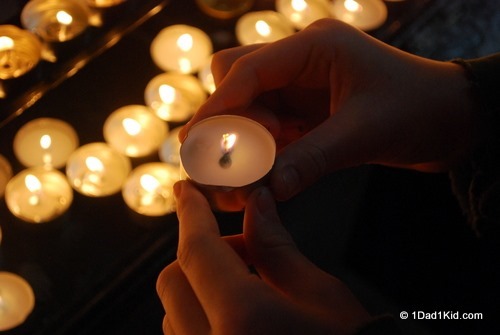When I recently wrote about a press trip I took to Thailand, an expat living in southeast Asia, who is also a blogger, challenged me about accepting “a trip bankrolled by the junta.” To be honest, when the Thailand trip came up, I hadn’t even considered the current political situation as it’s been relatively quiet. I felt his question was an excellent one and asked some other bloggers for their opinion.
I also considered my current stance on travel to some countries. For example, I will not travel to or use my blog to promote some countries. A couple of years ago I was contacted about a collaboration for Uganda. I had to decline because I couldn’t support a country that was actively promoting a “kill the gays” culture.
Some people feel this is unfair as we can’t always blame the people for what the government does. As a citizen of the US who greatly disagrees with a lot of the decisions made by our “leaders,” I get this. However, for me the difference is that in Uganda it isn’t just the government. Many Ugandas supported this move and have actively participated in the murder, imprisonment, and beatings of suspected LGBT people.
I take a similar stance with the UAE because of its horrid human rights practices. This is a country that enables and supports slavery. It isn’t just the government. I was frustrated when I wrote a glowing review of flying with Emirates Airline only to discover that it’s owned by the UAE government.
I also will not promote Russia because of its anti-LGBT “propaganda” law which essentially makes my family illegal once on their soil as you cannot represent that LGBT people are equal to heteros or that it’s a “normal” lifestyle. Well, since I have a son, that is exactly what I’m doing. At first I was willing to just look at it as a stupid Putin move; however, many Russians wholeheartedly have supported the law and have made it their practice to violently attack LGBT people, and they feel buoyed and empowered by the law. As the government has allowed them to continue these behaviors, I simply can’t support tourism there.
I have struggled with visiting countries that have strong anti-LGBT laws. For the most part, though, I have found that many of those countries don’t really enforce the laws, and they tend to not really be supported by the people. In those cases, I feel traveling there and experiencing the culture can be quite important.
The rape culture of India and the human rights issues in China have presented unique challenges to my desire to travel to those places. It can be such a complex issue, one that just isn’t so black and white sometimes.
As I’ve pondered these situations, the catch for me has been “Do the people support the practice?” When it’s clear to me that it’s mostly just the government, I view that differently. As many of the bloggers I queried replied, if you avoid traveling to countries with stupid governments, where could you go?
I couldn’t even visit my native land.
With the Thailand situation, I’ve spent a lot of time thinking about it. First of all, the military stepped in when the people revolted against the elected government and essentially forced a coup. I don’t think they fully anticipated what followed. While the junta has suppressed some things like freedom of speech (so has the US really), for the most part I don’t see this is an example of a dictatorship taking control and immediately harming its own people.
While tourism to such a place does in some way help the government, it mostly supports the group that needs it the most—the people. During our press trip, we ate in local restaurants, used tourism services owned by locals, etc. The resorts we used hire mostly locals which obviously boosts the local economy.
Will I potentially add some money to the junta’s coffers by promoting Thailand as a tourism destination? Sure, but increased tourism mostly helps the Thai people. And as the general population of Thai people aren’t promoting harming people, denying rights based on gender, promoting and encouraging slavery, and so on, I see no reason to punish them by withholding much-needed tourism dollars.
For me the biggest challenge with ethical travel is deciding who is really to blame. Government doesn’t always represent the will of the people, even in supposedly democratic countries.
One way to make an impact in some of these countries with tourism is to use local providers of services and avoid government-owned operations (in countries where that’s possible).
When it comes to making the decision about whether or not to travel somewhere, though, I think it’s really a personal decision. I don’t judge or fault people who go to Uganda, Russia, the UAE, etc. I know people who visited Burma (I don’t call it Myanmar as many Burmese have told me that is the military’s name for the country and not their preference) before the junta ostensibly returned power to the people. They were infinitely more cruel and oppressive than many governments.
Everyone has their own reason for traveling somewhere, and I’m in no position to make that decision for someone else.
In the end, ethical travel is about trying to make a positive difference any way you can and trying to minimize any negative impact of your visit, whether that be by avoiding a place because of how it treats women, or by skipping tourist attractions because of the damage it inflicts on animals and/or the environment.
What are your views about ethical travel?








July 1, 2015
Loved this post! Ethical travel is so difficult because like you said, most countries are guilty of some sort of human rights or freedom crushing actions, so where do you draw the line?
I think that you should definitely see China though. While the government may be oppressive and censorship, human rights, freedom of speech and pollution are terrible, it’s an extremely interesting place that’s becoming more progressive every year. I read books about China non-stop for 2 years before going so I felt like I really knew what I was getting into, and now I try to do that for all of my destinations. Research is really important.
July 3, 2015
I would eventually like to go there, but it’s a hard one. The culture isn’t that easy either, so I know I’ll have to wait until I’m in a different traveler frame of mind before I even attempt it.
April 9, 2015
I wholeheartedly agree Talon, you can’t just judge a country by their Government as the people quite often don’t agree with how their country is being run. Australia is an example of that too with the government currently in power here – the country has been recently named on a list of the world’s worst human rights offendes because of the treatment of refugees as well as their ultra conservative stance on same sex marriage. From living here, the Government doesn’t represent the majority of the country – in the cities anyway
April 9, 2015
Yeah, Australia is a truly great example of that!
April 6, 2015
I think this is SO important to think about – and discuss. We talk about green travel, but human rights and ethics are more important to consider when traveling. It’s good to think about choices and how we live and interact on this planet.
April 9, 2015
It sure is! Traveling has a far greater reach and effect than I think most of us are aware.
April 2, 2015
Excellent post. It’s an important but difficult balance, and I don’t think there can be one right answer.
For me, I separate considerations of personal safety from general ethical considerations, particularly when it comes to laws, policies or attitudes that discriminate against LGBT people.
Otherwise, I would be concerned that a government-sponsored trip has ethical problems that simply visiting a country does not. While it is true that you are mostly supporting businesses and people who are “everyday people” in the local economy, my concern would be that your tour itinerary chooses between business owners and service providers based on who the government/regime finds favorable. This can turn into economic coercion (or worse) on the people you wind up patronizing. Just something to be aware of. Not all government-arranged tourism works that way, but it can, and the more oppressive the regime, the more this differentiates government-provided travel from what you’d do on your own in the country.
April 6, 2015
It’s definitely a very complex issue. There is no black and white when it comes to these issues.
April 1, 2015
Great points, Talon. I do think the situation in Thailand is very different from what most would think of when there is a military coup. I am looking forward to reading some of the material referenced in earlier comments, though.
In the Caribbean, there are many many issues at play in determining whether we can recommend a place, and treatment of LGBT travelers is a big one.
We’ve been following stories from the Dominican Republic, where homosexual behavior is legal but discrimination is rampant, and trying to figure out whether or not it is a place we can recommend. After a Roman Catholic bishop used a slur against the openly gay US ambassador there, the country has done some soul- searching, and their tourism board is launching a campaign to bring LGBT tourists to the country. But it remains to be seen whether this is indicative of a true change in attitudes or simply a crass desire to cash in on a lucrative market.
I do think it is important to examine these types of things when we travel, and especially when we as influencers accept press trips. Thanks for bringing it up.
April 6, 2015
Some excellent comments, Paige. I’m glad you guys are looking at those issues closely. As far as LGBT travel goes, I have to consider the level of violence as well. I can’t travel to a place, or promote it, where violence against LGBTs is common, supported and/or ignored, personally.
April 1, 2015
I think it’s important for travelers to think about the ethics of and implications of traveling to certain places, but as you rightly point out, it’s hard to find many places to go that don’t have any dicey/questionable policies in effect. I mean, are we all just meant to visit Bhutan and that’s it? 😛 I remember meeting some travelers who said they would NEVER go to China because of the human rights violations there, but they then went on to talk about how much they LOVE Egypt and have since visited Israel too.
As you point out, there are also a lot of different ways to travel. Tony and I really try to do our part when we travel to stay at local lodging options and to support local business and communities so that those who can benefit the most from tourism actually do.
At the end of the day, I think it’s important to think about the places we are visiting and supporting, but we certainly don’t have the right to tell others where they can’t or should not visit. That doesn’t mean it’s not important to take a stand, but when ethics enter the picture, everything gets rather murky.
April 6, 2015
It definitely can come down to a very personal, individual decision. Even though I won’t support, undergo, or promote travel to some places, I never critique someone else for doing so. It just isn’t my place to do so, especially when my decisions are really more of a personal level. People have to make the decisions that are right for them. I just hope they stop to think before making the decision.
April 1, 2015
Thoughts: provoked. Thanks Talon.
April 6, 2015
Glad to read that. 😉
April 1, 2015
You are so right Talon. Not because the government is corrupt, means that the people of the country is corrupt. If that was the case nobody would be going to Spain!
As travelers we must choose well and support the people who need it. Boycotting a whole country because you don’t like what their government is doing is not correct in my opinion. We need to stand by the people’s side, since their government isn’t.
April 6, 2015
One does need to make sure the government isn’t simply acting on behalf of its citizens, like with Uganda and seemingly with Russia. But, yeah if we excluded countries that had governments doing stupid things, I think only Iceland would get any visits.